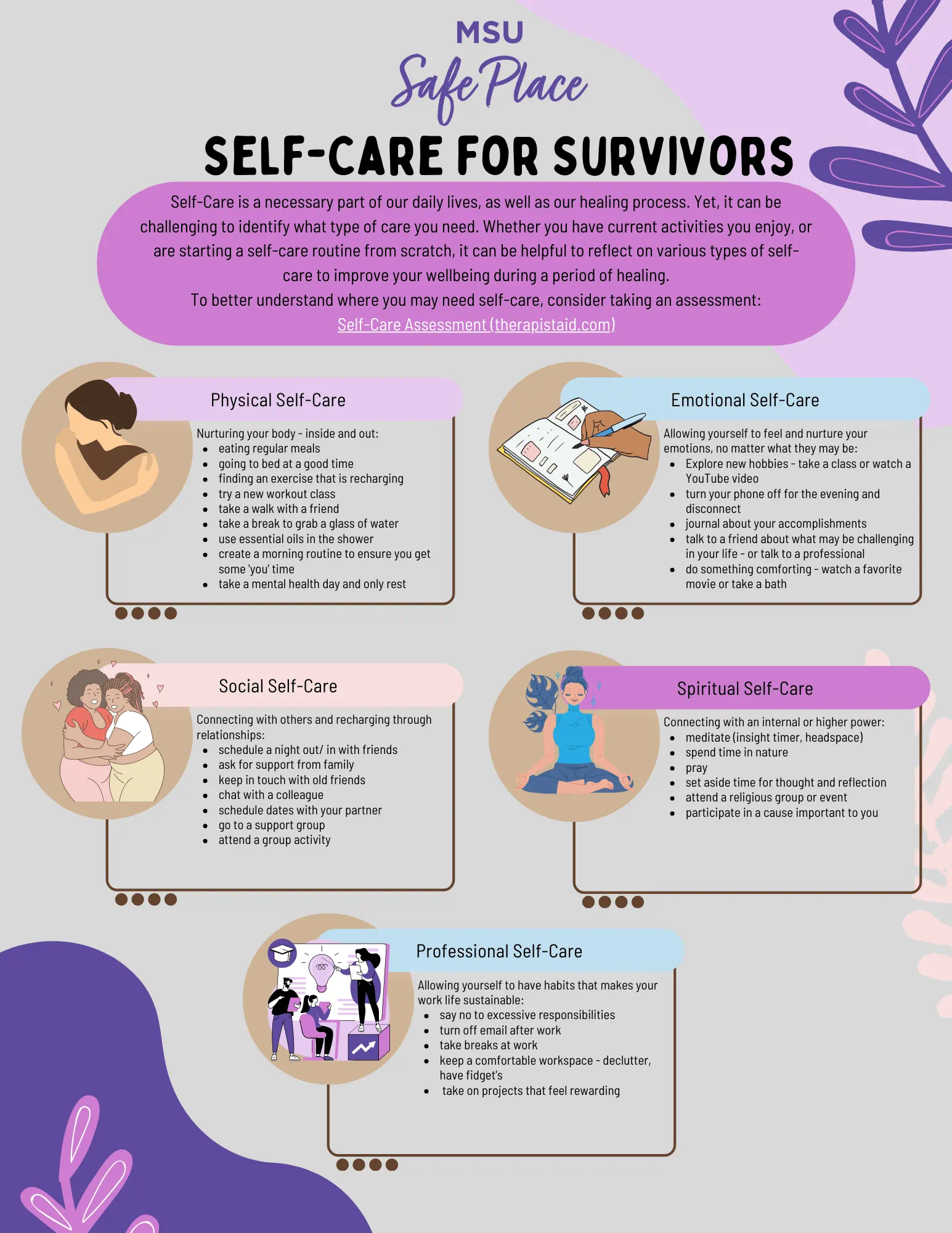What is Self-Care?
Self-care is anything you do to take care of yourself so you can stay physically, mentally, and emotionally well. Common examples of self-care include: maintaining a regular sleeping routine, eating healthy, spending time in nature, doing a hobby you enjoy, and expressing gratitude. Self-care can look different for everyone, but the behavior should promote health and happiness for you.
Self-care is an essential tool for centering yourself and meeting your needs. As a result of tactics used by abusers, survivors of relationship violence are often unable to prioritize their own needs or can/could not do so during the relationship, due to the control they endure/d. Learning more about self-care can help survivors become aware of activities that may assist them in their healing process, as well as help them to regain power and control in their own lives.
